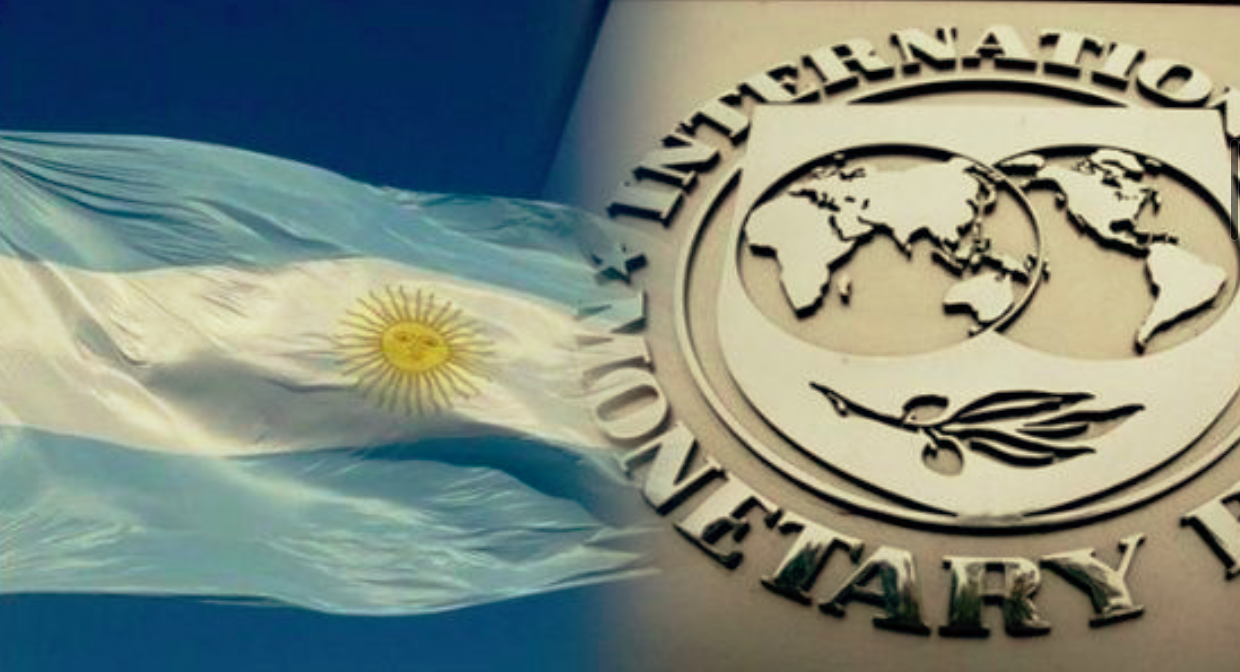RIO DE JANEIRO, BRAZIL – In the statement, spokesman Gerry Rice indicated that “the authorities have informed the IMF that they will combine Argentina’s payment obligations maturing on March 21 and 22 into a single repurchase to occur before March 31, 2022, for a total amount equivalent to US$2 billion in Special Drawing Rights (SDRs)”.
Read also: Check out our coverage on Argentina
“The Government’s decision, which does not require the approval of the IMF Executive Board, is consistent with IMF rules and with Argentina remaining in good standing with the Fund. Consequently, Argentina will not incur in arrears,” he remarked.

Argentina had to face an interest payment on March 21 and another one on March 22 due to the maturity of the principal of the previous plan agreed by the government of Mauricio Macri.
At the same time, Rice explained that “to allow time to take into account the rapid changes in world events, including the war in Ukraine, the IMF Executive Board will meet this Friday, March 25, to discuss Argentina’s request for a Fund-supported program”.
With the postponement of the payment date to March 31 and if on March 25 the IMF approves the program endorsed by the National Congress, the postponed combined payment falls under the new program, said sources from the Ministry of Economy.
On March 25, the IMF Board will discuss the understanding, for the first time in history endorsed by the National Congress, which foresees a two and a half year program, with fiscal, monetary, and inflation targets, and which will allow repaying the credit disbursements of US$45 billion until 2034.
In addition, Rice expressed her “satisfaction with the recent approval by the Argentine National Congress of the agreement reached with the IMF staff to be supported by an Extended Fund Facility Agreement (EFF)”.
In this regard, the IMF stressed that the organization “attaches great value to the broad social support for the success of the Program and the legislative approval is an important signal that Argentina is committed to policies that foster more sustainable and inclusive growth”.
He added that the parliamentary approval “is testimony to the dedication and hard work of the Argentine authorities who have helped achieve this important step forward.”
In this regard, the Argentine Minister of Economy, Martín Guzmán, highlighted on his Twitter account that “for the first time in history it passed through Congress and achieved an 80% level of adhesion,” stressing that “unions, the private sector, universities, social movements, and civil society also accompanied it”.
Regarding the IMF board meeting, which now moves to March 25, Guzman published: “We expect multilateral support. It will bring more stability for Argentina, Latin America, and the world.”
Last week, before the Senate gave its approval to the understanding, Rice said the agreement will seek to “begin to reduce persistently high inflation through a multi-pronged strategy involving a reduction in monetary financing of the fiscal deficit, and a new framework for the implementation of monetary policy to generate positive real interest rates, to support peso assets.”
It “will be a challenging task in light of the evolving global environment, as rising commodity prices affect inflation around the world,” Rice continued.
Meanwhile, if the board approves the understanding – something that analysts in Washington give a high probability of occurring – the program will be activated, starting with disbursements of US$9.8 billion, necessary to meet this week’s maturities with the IMF and to recover reserves.
It will also give rise to a series of 10 quarterly reviews, with public and virtual missions and meetings necessary to activate the subsequent disbursements until completing the US$45 billion over two and a half years.
In this regard, it should be noted that the money received during the first year will allow net financing from the IMF equivalent to 0.7% of GDP, which will favor the accumulation of BCRA reserves.
To this, additional financing of US$2.6 billion from other multilateral organizations will be added to help close this year’s fiscal gap.
Among the agreement guidelines, the strong point is that it foresees an increase in social and infrastructure spending. At the same time, it does not contemplate the implementation of labor and social security reforms, which removes the stigma of “adjustment” traditionally attached to the agreements signed by Argentina with the IMF in the past.
In this sense, more funds for social inclusion and more investment in public works will exceed the equivalent of 2% of GDP.

